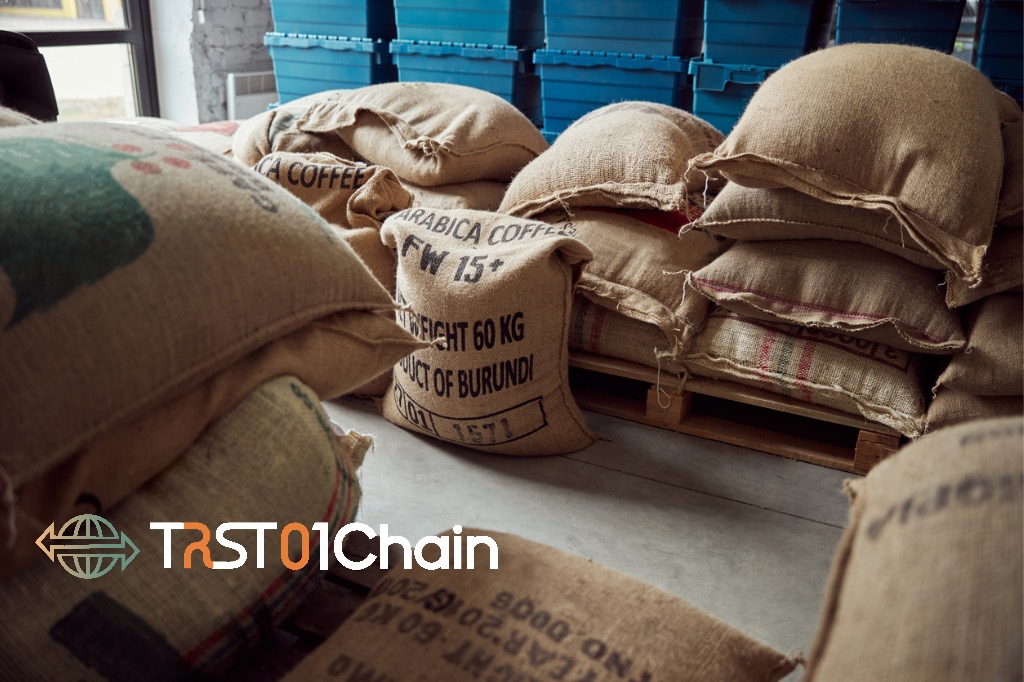EUDR Coffee : Between the Cup and the Lip
Challenges and Solutions for the Coffee Industry

The European Union (EU) is the largest consumer of coffee in the world, accounting for 31% of global consumption. This significant demand, combined with the EU’s new Deforestation Regulation (EUDR), poses major challenges for coffee-producing countries. The EUDR is designed to prevent products associated with deforestation from entering the EU market, making compliance with this regulation crucial for maintaining access to the profitable European market.
Major Coffee Producers and Their Exports
Coffee production is an extensive global undertaking that spans across seventy countries, each characterized by distinct climates, ecosystems, and production capacities. Leading coffee producers include Brazil, Vietnam, Cambodia, Indonesia, and Ethiopia, with Brazil and Vietnam taking the top spots in worldwide coffee production. While these two countries lead the pack, Cambodia, Indonesia, and Ethiopia also play integral roles in the industry.
India, ranked as the sixth-largest coffee producer globally, serves as a compelling example of the significant implications involved in coffee production. In the fiscal year 2023-24, India’s coffee production amounted to 374,000 metric tons (MT), and the country exported coffee amounting to $1.25 billion. Notably, a substantial 57% of this export value, corresponding to two-thirds of its production volume, was directed to European markets. This heavy reliance on the EU underscores the potential impact of the European Union’s regulatory environment on India’s coffee sector.
Impact of the EUDR on Global Exports
Over 55 countries export an average of at least $100 million worth of goods to the EU annually. This highlights the significance of the EUDR for these nations. The impact of the EUDR will vary depending on the nature of the exported goods, the target markets within the EU, and the exporting countries’ capacity to handle farm mapping and compliance documentation. Concerns have arisen about potential cost increases, which could lead to higher prices for European consumers. These price rises may be attributed to the additional compliance costs that producers and exporters will need to shoulder to meet the EUDR requirements.

Challenges for the Coffee Industry
The coffee industry faces distinct challenges under the EUDR (European Union Timber Regulation). Unlike commodities such as palm oil, cattle, or soy, which are more directly associated with large-scale deforestation, coffee production is characterized by millions of smallholder growers. These growers are spread across numerous countries, making the implementation of uniform compliance measures particularly daunting and complex due to the diversity of local practices and regulations.
Many of these smallholder farmers lack the resources and infrastructure needed to demonstrate compliance with the new regulations. This could potentially exclude a significant number of them from the EU market, thereby impacting their livelihoods and the global coffee supply chain. Additionally, the disparities in access to information and resources among smallholder growers may further exacerbate the challenges of complying with the regulations, potentially leading to market exclusion for those unable to meet the new requirements.
Adding to Coffee Premium
Adhering to the EUDR is expected to raise the expenses of coffee production and export. Coffee producers and exporters will need to cover the additional costs associated with farm mapping, data collection, and maintaining detailed compliance records. As a result, the price of coffee is likely to increase, leading to a higher premium for EUDR-compliant coffee in the European market. Currently, the market is already demanding $50 to $100 per metric ton for EUDR-compliant coffee in Europe.
For smallholder farmers, the burden of these costs can be particularly heavy, potentially leading to consolidation in the industry as smaller producers struggle to meet the new standards. However, this also presents an opportunity for premium branding. Coffee that is certified as compliant with the EUDR can be marketed as more sustainable and ethically produced, potentially appealing to conscious consumers willing to pay a higher price for such assurances.

Addressing Compliance with Advanced Technology
In the face of these complex challenges, it is imperative to embrace innovative solutions. TRST01 provides an extensive technological package known as #TRST01Chain, which is fully equipped and ready for implementation to aid producers and exporters in fulfilling the EUDR requirements. This technology stack is designed to streamline the compliance process, making it more accessible and efficient for both smallholder farmers and large producers.
TRST01Chain incorporates advanced tools for in-depth farm mapping, real-time data tracking, and effective management of compliance paperwork. Through the utilization of such cutting-edge technology, producers can ensure high levels of transparency and traceability in their supply chains, thus meeting the rigorous standards set by the EUDR.
The Future of Coffee Production and Export
As the EUDR comes into effect, coffee-producing countries and their industries will need to adapt swiftly. The ability to comply with the regulation will be crucial for maintaining market access and ensuring the continued flow of coffee exports to the EU. While the challenges are significant, the adoption of advanced technologies and proactive measures can help mitigate the impact on smallholder farmers and the broader industry.
For coffee producers, exporters, and stakeholders within the coffee supply chain, staying informed and prepared is essential. TRST01 is poised to support the industry through this transition, offering solutions that can enhance compliance and sustainability.
Connect with Us
TRST01 is ready to assist coffee producers and exporters in navigating the complexities of the EUDR. Our full tech stack, #TRST01Chain, is designed to streamline compliance and ensure transparency across the supply chain. Contact us for a demo, or write us journey@trst01.com for more information on how we can help your business adapt to the new regulations.
Recent Comments
Recent Posts
- Traceability as Infrastructure February 27, 2026
- Reimagining EPR in the Digital Age January 1, 2026
- EUDR FAQ Insights_4th iteration May 2, 2025
- Shaping a Greener, Smarter World December 27, 2024
- Sustainability Through Traceability December 9, 2024
- MoU with Rubber Board August 27, 2024
- Sustainability and TRST01 Technology Innovation August 12, 2024
- Driving Global Impact: Regulation, Technology, and Adoption July 14, 2024
- Blockchain Revolutionising Provenance Global Supply Chains July 11, 2024
- Supply Chain Innovation TRST01Chain June 18, 2024
- Blockchain for Sustainability June 14, 2024
- EUDR Coffee : Between the Cup and the Lip June 9, 2024
- EUDR and India Rubber Export May 25, 2024
- Data Driven Sustainability April 28, 2024
- Paradigm Shift in ESG April 14, 2024
- ESG Beyond the Reports March 21, 2024
- The Kenko Eggs A Case Study February 18, 2024
- New Frontier : Carbon Broader Adjustment Mechanism (CBAM) January 27, 2024
- EUDR Compliance in Indian Trade January 7, 2024
- The Indian Coffee Story : Brewing Harmony December 16, 2023
- The Rubber Story : Between Growth and Sustainability December 10, 2023
- The 4R Strategy : Roadmap to Sustainable Growth December 3, 2023
- Sustainable Indian Coffee: A EUDR Perspective November 10, 2023
- Climate Tech and SDGs: Unlocking Potential October 21, 2023
- ESG Scorecards : TRST01’s Vision October 11, 2023




